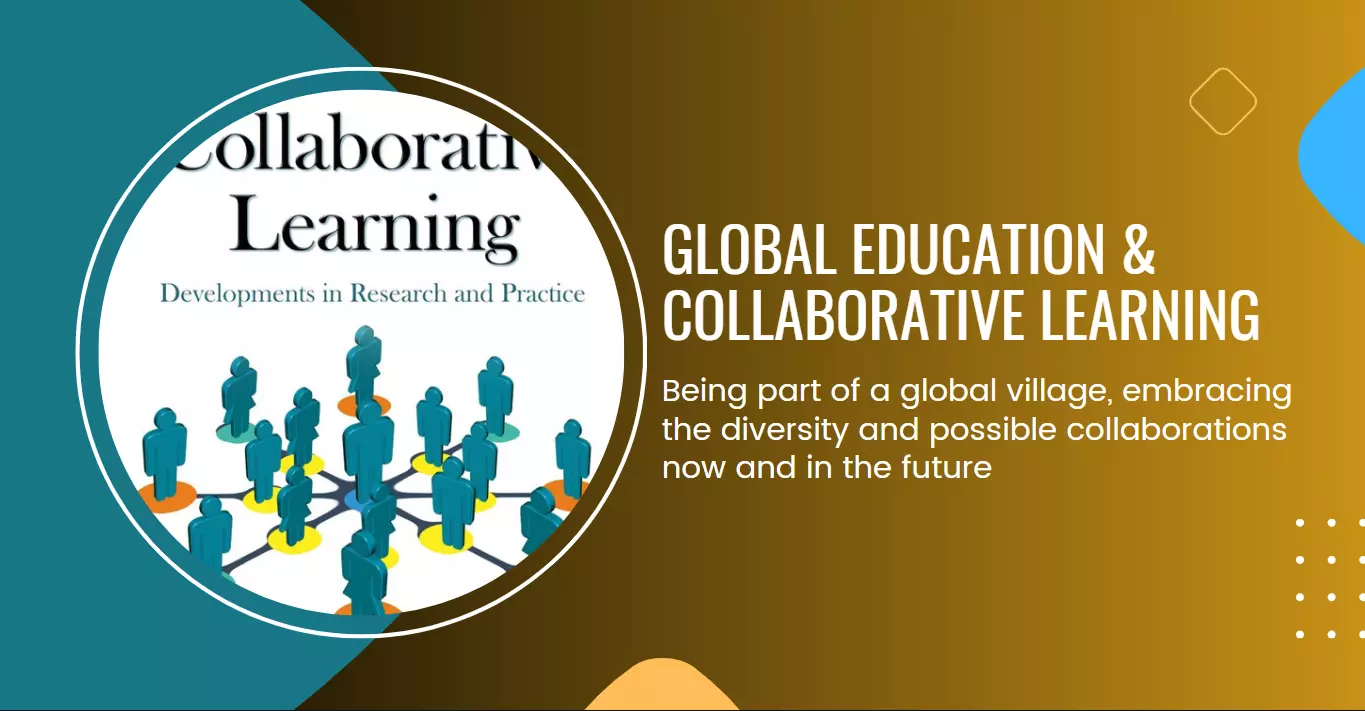Fostering Global Education and Collaborative Learning: Preparing Students for an Interconnected World

In today's increasingly interconnected world, education must go beyond traditional boundaries to prepare students for a globalized future. Global education and collaborative learning are gaining prominence as essential approaches to fostering cross-cultural understanding, global citizenship, and the ability to collaborate effectively with diverse perspectives.
Promoting Cross-Cultural Understanding
Global education emphasizes the importance of understanding and appreciating different cultures. This involves not only learning about cultural norms and traditions but also developing empathy and respect for diverse viewpoints. Educators can promote cross-cultural understanding through various means, such as:
Integrating global perspectives into the curriculum: Incorporating global themes and issues into subjects like history, geography, literature, and social studies exposes students to different cultures and perspectives.
Encouraging intercultural communication: Providing opportunities for students to interact with individuals from different cultures through language exchange programs, virtual exchanges, and cultural celebrations fosters understanding and appreciation of diversity.
Promoting global citizenship education: Teaching students about global issues, such as sustainability, human rights, and poverty, encourages them to think critically about global challenges and develop a sense of responsibility for the well-being of the planet.
Nurturing Global Citizenship
Global citizenship education aims to empower students to become active and responsible members of a global community. This includes developing the skills and knowledge necessary to engage in civic participation, promote human rights, and contribute to sustainable development.
Encouraging civic engagement: Providing opportunities for students to participate in community service projects, advocacy campaigns, and simulations of global governance processes fosters a sense of civic responsibility and engagement.
Promoting human rights education: Teaching students about human rights, including universal principles and the challenges faced by marginalized groups, encourages them to become advocates for justice and equality.
Encouraging sustainable thinking: Integrating sustainability education into the curriculum helps students understand the interconnectedness of global environmental, social, and economic issues, fostering a commitment to sustainable practices.
Fostering Collaborative Learning
Collaborative learning encourages students to work together to solve problems, share ideas, and learn from each other. This approach promotes teamwork, communication, and critical thinking skills, which are essential for success in a globalized world.
Implementing collaborative projects: Assigning students group projects that require them to work together to research, analyze, and present information from diverse perspectives fosters collaboration and communication skills.
Encouraging peer-to-peer learning: Creating opportunities for students to teach and learn from each other through peer tutoring, group discussions, and online collaboration platforms promotes knowledge sharing and mutual learning.
Leveraging technology for collaborative learning: Utilizing online tools and platforms, such as virtual classrooms, discussion forums, and project management tools, can facilitate collaboration among students from different geographical locations and cultural backgrounds.
Examples of Global Education Initiatives
Numerous global education initiatives are actively promoting cross-cultural understanding, global citizenship, and collaborative learning. These initiatives provide valuable resources and support for educators and students alike.
The UNESCO Global Education Coalition: This initiative brings together partners from various sectors to promote equitable and inclusive education for all. It offers a wealth of resources and tools for educators to implement global education in their classrooms
The World's Largest Lesson: This annual educational campaign aims to teach children about the Sustainable Development Goals (SDGs) and empower them to take action for a more sustainable future.
The Global School Partnerships Network: This network connects schools worldwide, enabling them to collaborate on projects, share resources, and promote intercultural understanding.
Impact on Student Learning
Global education and collaborative learning have a profound impact on student learning. Studies have shown that these approaches;
Enhance critical thinking and problem-solving skills: Students learn to analyze issues from multiple perspectives, evaluate information, and develop creative solutions to global challenges.
Improve communication and collaboration skills: Students learn to articulate their ideas clearly, work effectively in diverse teams, and resolve conflicts constructively.
Promote empathy and cross-cultural understanding: Students develop an appreciation for different cultures, perspectives, and values, fostering respect and tolerance for diversity.
Increase motivation and engagement: Students become more actively involved in their learning when they see its relevance to the global community and the impact they can make.
Global education and collaborative learning are essential components of 21st-century education. By preparing students to navigate an interconnected world, these approaches empower them to become informed, responsible, and engaged global citizens. As educators, we have a crucial role to play in fostering cross-cultural understanding, promoting global citizenship, and nurturing the skills necessary for success in a globalized future.
